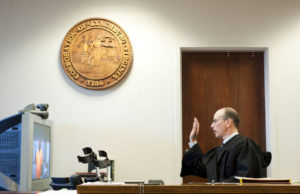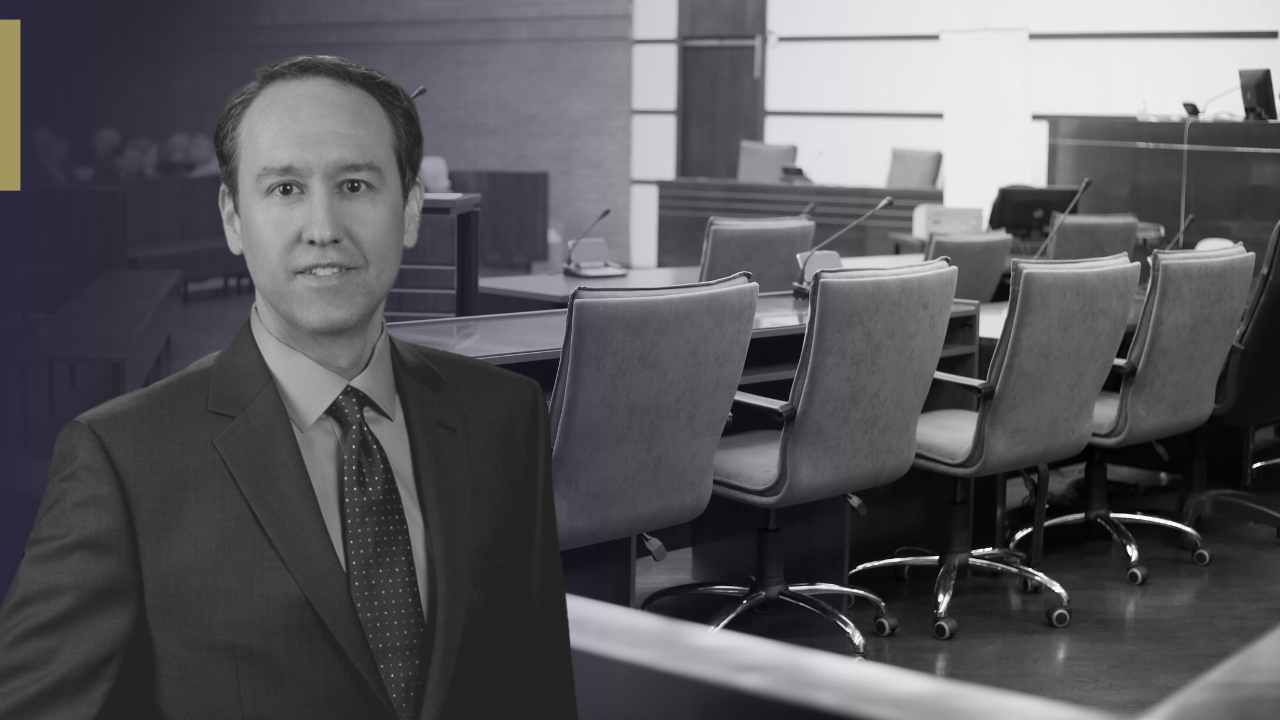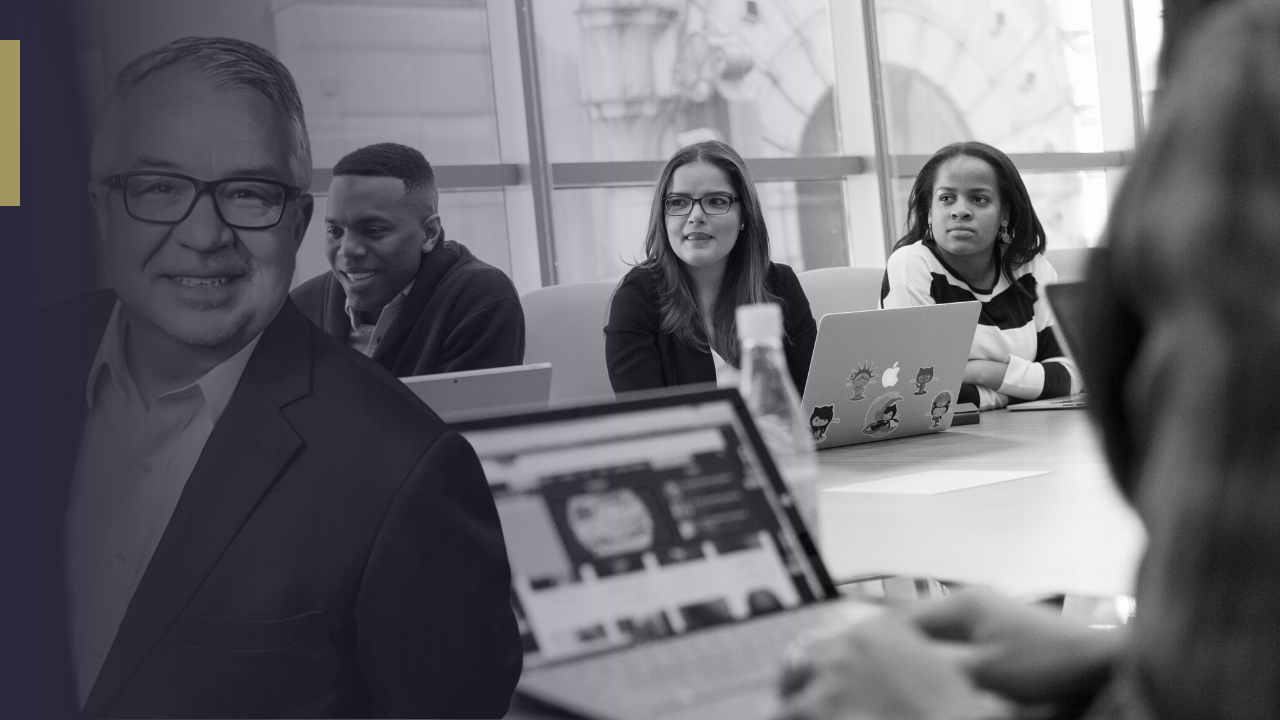 A couple of weeks ago, I had a critical witness who would be unavailable to attend a hearing. The Court insisted on a particular date, and the expert had travel plans and non-refundable plane tickets. We decided that we would take his testimony by Skype. Moments after making the decision to Skype the witness, I asked myself “How do you take a witness’s testimony by Skype?” And here is my story. Note, I refer to Skpe throughout this post. But there are other videoconferencing platforms out there.
A couple of weeks ago, I had a critical witness who would be unavailable to attend a hearing. The Court insisted on a particular date, and the expert had travel plans and non-refundable plane tickets. We decided that we would take his testimony by Skype. Moments after making the decision to Skype the witness, I asked myself “How do you take a witness’s testimony by Skype?” And here is my story. Note, I refer to Skpe throughout this post. But there are other videoconferencing platforms out there.
Your jurisdiction may vary. But Georgia’s provision for taking a witness by Skype is Uniform Superior Court Rule 9.2. 9.2 (A) lists an assortment of situations where video conferencing may be done. The list includes such routine things as applications for search warrants and first appearance hearings. For my situation, there was one matter that applied to me, which was found at (A)(12), “post-sentencing proceedings in criminal cases.” And the catch-all provision applied as well.
For everything else, the place to look in 9.2 (C). There the rule provies:
In any pending matter a witness may testify via video conference. Any party desiring tocall witness by video conference shall file a notice of intention to present testimony by video conference at least (30) days prior to the date scheduled for such testimony. Any other party may file an objection to the testimony of a witness by video conference within ten (10) days of the filing of the notice of intention. In civil matters, the discretion to allow testimony via video conference shall rest with the trial judge. In any criminal matter, a timely objection shall be sustained; however, such objection shall act as a motion for continuance and a waiver of any speedy trial demand.
In a nutshell, if you want to take a witness by Skype, you should seek your opponent’s consent. And if you anticipate a problem, you should file the notice 30 days in advance. Your opponent’s objection (in a criminal case) is deemed a motion to continue. In my case, my opponent consented to take the witness by Skype.
Once you have your opponent’s consent or a court order for skype testimony, there are a few other things to worry about. Take a close look at (E), which sets out the technical mimimums for video conferencing testimony.
- All participants must be able to see, hear, and communicate with each other simultaneously;
- All participants must be able to see, hear, and otherwise observe any physical evidence or exhibits presented during the proceedings, either by video, facsimile, or other method.
- Video quality must be adequate to allow participants to observe each other’s demeanor and nonverbal communiction; and
- The location from which the trial judge is presiding shall be accessible to the public to the same extent as such proceeding would if not conducted by video conference. The court shall accommodate any request by interested party two observe entire proceedings.
In other words, when the witness appears on screen, there should be no difference between that experience and what it would be for the witness to be present in court. And, as techy as I consider myself to be, I am paranoid about technological fails in the courtroom. So, here is what I did.
Two weeks before my court date, I took my laptop and iPad to the courthouse (in a very rural area in Georgia). I used the empty courtroom to call my witness by Skype using the courtroom WiFi and my cellular connection as a backup. Everything worked. I check to see if the court had a video monitor. And the Court did. When I tested out the video, I noticed that I needed an hdmi adapter for my iPad and laptop. So I put those on my shopping list. I ran at test on Fast to make sure that I had a sufficient connection. It turns out that my cellular connection would be faster than the court’s WiFi.
In the intervening weeks, I made sure that the witness had a copy of every potential exhibit that might come up. The only glitch was that the witness was not at his office. I asked him to test out his Skype in the location he would be.
On the morning of court, I arrived early to do a final check. I made sure the court reporter could hear everything well. I noticed that there was a little lag, so I made sure the witness spoke slowly.
The judge had some questions during the testimony. And he was not close enough to the mic for the witness to pick up his voice. But this problem was largely solved by my repeating the questions. So, the next time I do a Skype witness, I will make sure that the computer can pick up the judge from across the room. This can either be solved by the location of the set up or perhaps an external microphone.
The overall experience was good. And it was great to be able to conduct a hearing with a witness off in Florida. Skype is certainly a potential solution to put up trial counsel’s testimony in habeas proceedings and in keeping down the cost of using an expert witness. However, it takes much more work to arrange for Skype testimony to pull off without a glitch than it does simply to have a witness there — particularly in more rural courtrooms where connectivity is a potential issue.


